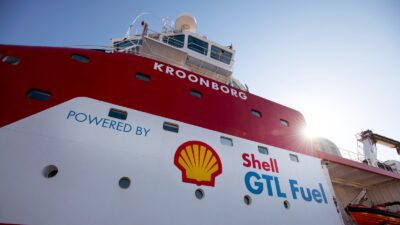It’s been a good year for BP (LSE: BP) investors. The oil giant’s share price has risen to a post-2010 high of 595p, and is now 24% higher than one year ago.
What’s interesting is that BP shares are now within about 15% of their all-time high of around 700p. Today I’m going to ask whether this FTSE heavyweight could print a new all-time high in 2019.
I’m also going to look at a small-cap oil firm whose share price could double over the next 12 months.
Passive income stocks: our picks
Do you like the idea of dividend income?
The prospect of investing in a company just once, then sitting back and watching as it potentially pays a dividend out over and over?
If you’re excited by the thought of regular passive income payments, as well as the potential for significant growth on your initial investment…
Then we think you’ll want to see this report inside Motley Fool Share Advisor — ‘5 Essential Stocks For Passive Income Seekers’.
What’s more, today we’re giving away one of these stock picks, absolutely free!
Ignore the forecasts
Over the last 12 months, consensus forecasts for BP’s 2018 earnings have risen by 50% to $0.56 per share.
Historical data provided by Reuters shows that BP’s earnings have beaten quarterly forecasts consistently since mid-2017. Rising oil prices have added fuel to the fire.
Analysts have simply been playing catch-up.
Let the facts speak
The good news is that there are some hard facts we can use. Between 2010 and 2013, BP generated an underlying replacement cost profit — the most comparable measure — of between $13.4bn and $21.2bn each year.
In 2017, underlying replacement cost profit was just $6.2bn, less than half the minimum underlying profit earned during the last oil boom.
Why I’m bullish
The price of oil is still lower than it was in 2010-2013. But BP’s costs are also lower and the firm is now focused on maximising profits rather than just pursuing growth.
At the time of writing, the shares were trading on 14 times 2018 forecast earnings, with a 5.1% dividend yield.
My sums suggest that the group’s profits and dividend would only need to rise by another 15% to justify a share price of 700p.
Commodity producers always carry some risk. But with production and oil prices still rising, I think there’s a good chance that the BP share price will set new records some time soon.
A potential double bagger?
Small-cap Serica Energy (LSE: SQZ) is poised to become one of the beneficiaries of BP’s decision to exit older North Sea assets. The company expects to complete a deal to buy stakes in the Bruce, Keith and Rhum (BKR) fields from BP and French firm Total at the start of November.
Serica will then be entitled to a share of net cash flows from the fields from 1 January to the completion date.
These two deals are expected to increase the group’s proven and probable reserves from 3m barrels of oil equivalent (mmboe) to 60mmboe. Impressively, this has been done without raising debt or issuing new shares.
The firm reported a loss for the first half of 2018 today, as production from its Erskine field has been suspended due to a pipeline fault. However, this is one case where analysts’ painstaking calculations can be useful.
Forecasts for the full year — including cash flow from BKR — suggest Serica could generate earnings of $0.41 per share in 2018, if the deal completes as expected.
These projects put the stock on a forecast P/E of just 2.8, falling to a P/E of 2.2 in 2019.
Such a low valuation multiple is unlikely to be sustainable. If the BKR deal delivers as expected, I believe Serica’s share price could quickly double from current levels, to reflect the expanded firm’s profits and cash generation.
That’s why I rate this stock as a speculative buy.







